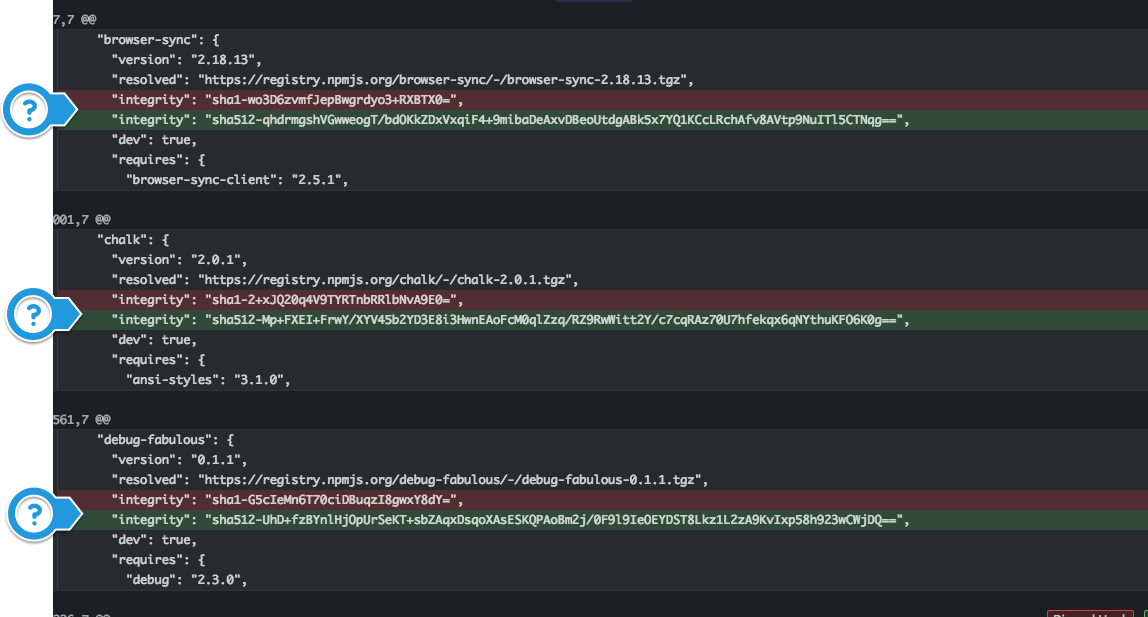I just generated a new npm lockfile, package-lock.json, as part of my typical workflow. But I noticed that this time all of the integrity hashes have been changed from sha1 to sha512. What is happening here?
"chalk": {
"version": "2.0.1",
"resolved": "https://registry.npmjs.org/chalk/-/chalk-2.0.1.tgz",
- "integrity": "sha1-ce5R+nvkyuwaY4OffmgtgTLTDK8=",
+ "integrity": "sha512-lyuxPGr/Wfhrlem2CL/UcnUc1zcqKAImBDzukY7Y5F/yQiNdko6+fRLevlw1HgMySw7f611UIY408EtxRSoK3Q==",
[…]
}

